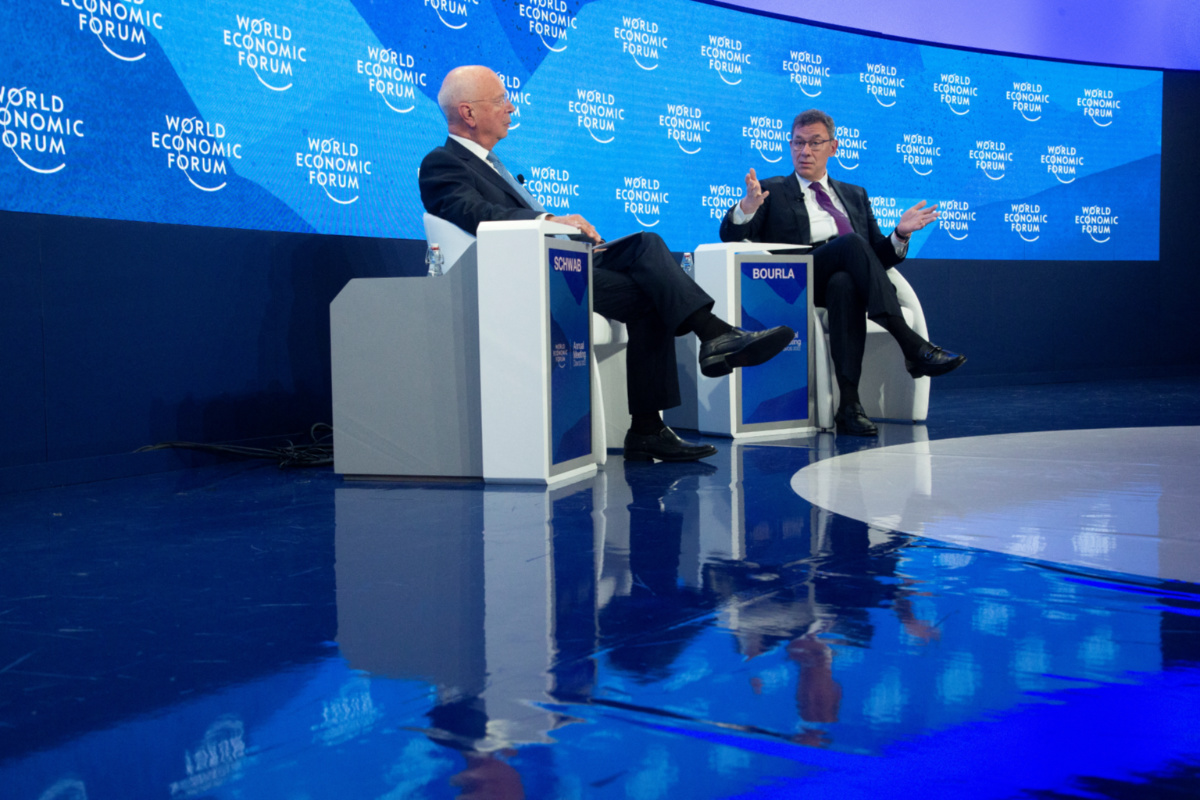Pfizer Inc will make all of its patented medicines including COVID-19 treatment Paxlovid and big-selling breast cancer drug Ibrance available at a not-for-profit price to 45 of the world’s poorest countries, the drugmaker said on Wednesday.
These countries lack good access to innovative treatments. It can take four to seven years longer for new treatments to become available in low-income countries, according to the Bill & Melinda Gates Foundation, if they become available at all.

Albert Bourla, CEO of Pfizer speaks during a discussion with founder and Executive Chairman of WEF Klaus Schwab at the World Economic Forum in Davos, Switzerland on 25th May. PICTURE: Reuters/Arnd Wiegmann.
Pfizer said its plan includes 23 wholly-owned, patented medicines and vaccines that treat infectious diseases, certain cancers, and rare and inflammatory diseases. In addition to Paxlovid and Ibrance, the list includes pneumonia vaccine Prevnar 13, rheumatoid arthritis drug Xeljanz and cancer treatments Xalkori and Inlyta.
The COVID-19 vaccine Comirnaty developed with BioNTech SE was also on the list.
Chief Executive Albert Bourla said in an interview that all the medicines being made available should be of use.
“But clearly the antiviral [Paxlovid] is going to be a very big deal for them – if they need it they can get it immediately,” he said.
When Pfizer launches new medicines and vaccines, they will also be included in the drug portfolio at a not-for-profit price, it said.
The 27 low-income countries and 18 lower-income countries included in what Pfizer is calling “An Accord for a Healthier World” cover most of Africa and much of Southeast Asia. Five countries – Rwanda, Ghana, Malawi, Senegal and Uganda – have already committed to joining the accord, which was announced at the World Economic Forum in Davos.
Malawi President Lazarus Chakwera said in a statement the accord will allow the countries and the drugmaker to share “the burden of costs and tasks in the production and delivery of supplies that will save millions of lives.”
Pfizer has been criticized for how it rolled out its COVID-19 vaccine, with some poorer countries waiting for months after the earliest doses arrived in wealthier countries.
Bourla said the new accord has been informed by the difficulties of that rollout, particularly the lack of health infrastructure in some countries that made distributing the vaccine difficult.
“Instead of washing our hands and saying, ‘I gave you the product, do whatever you want with them,’ we’re saying, ‘We’ll give you the products and we will sit with you to see how we can help organize a system that can utilize them,'” Bourla said.






